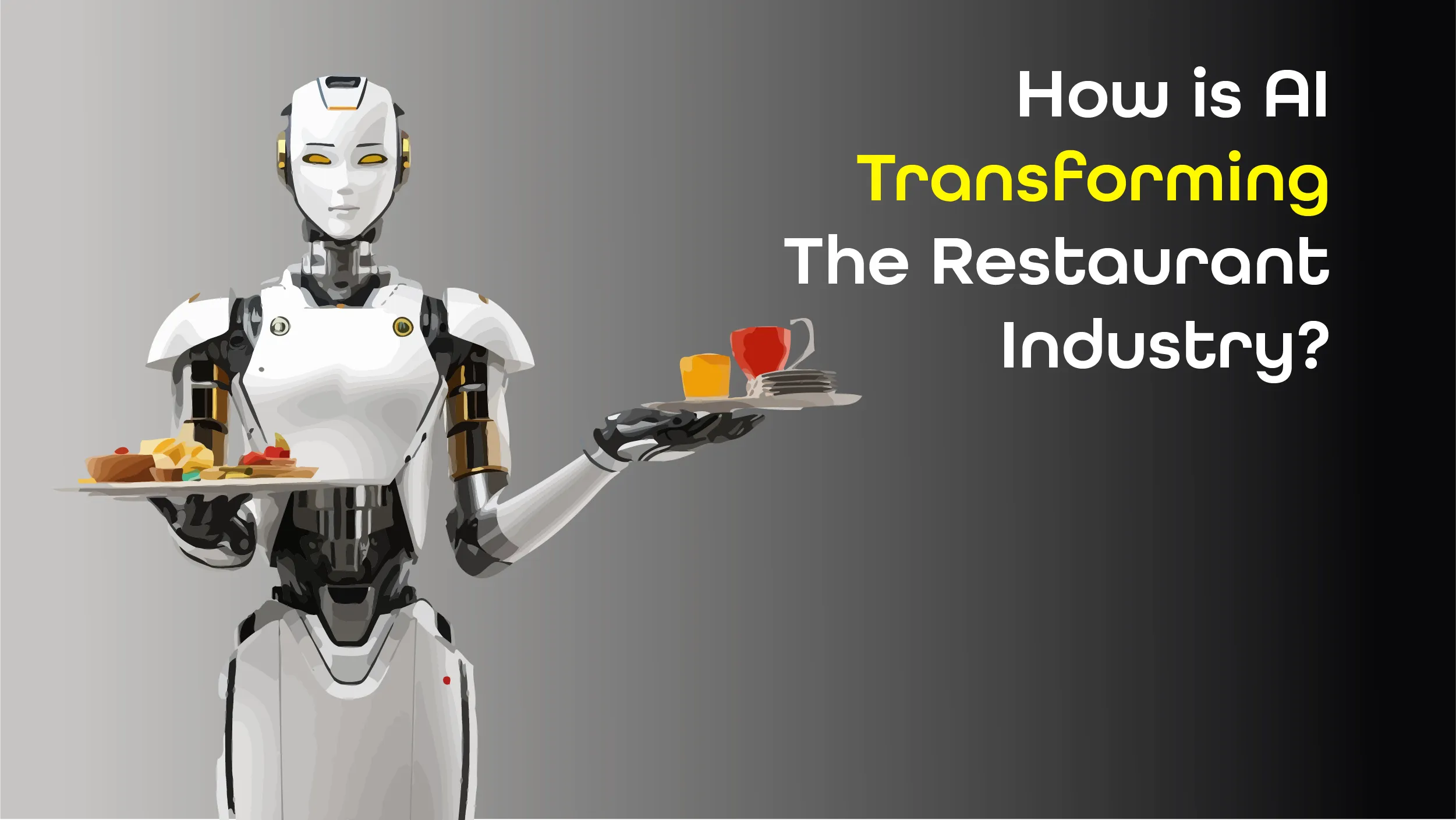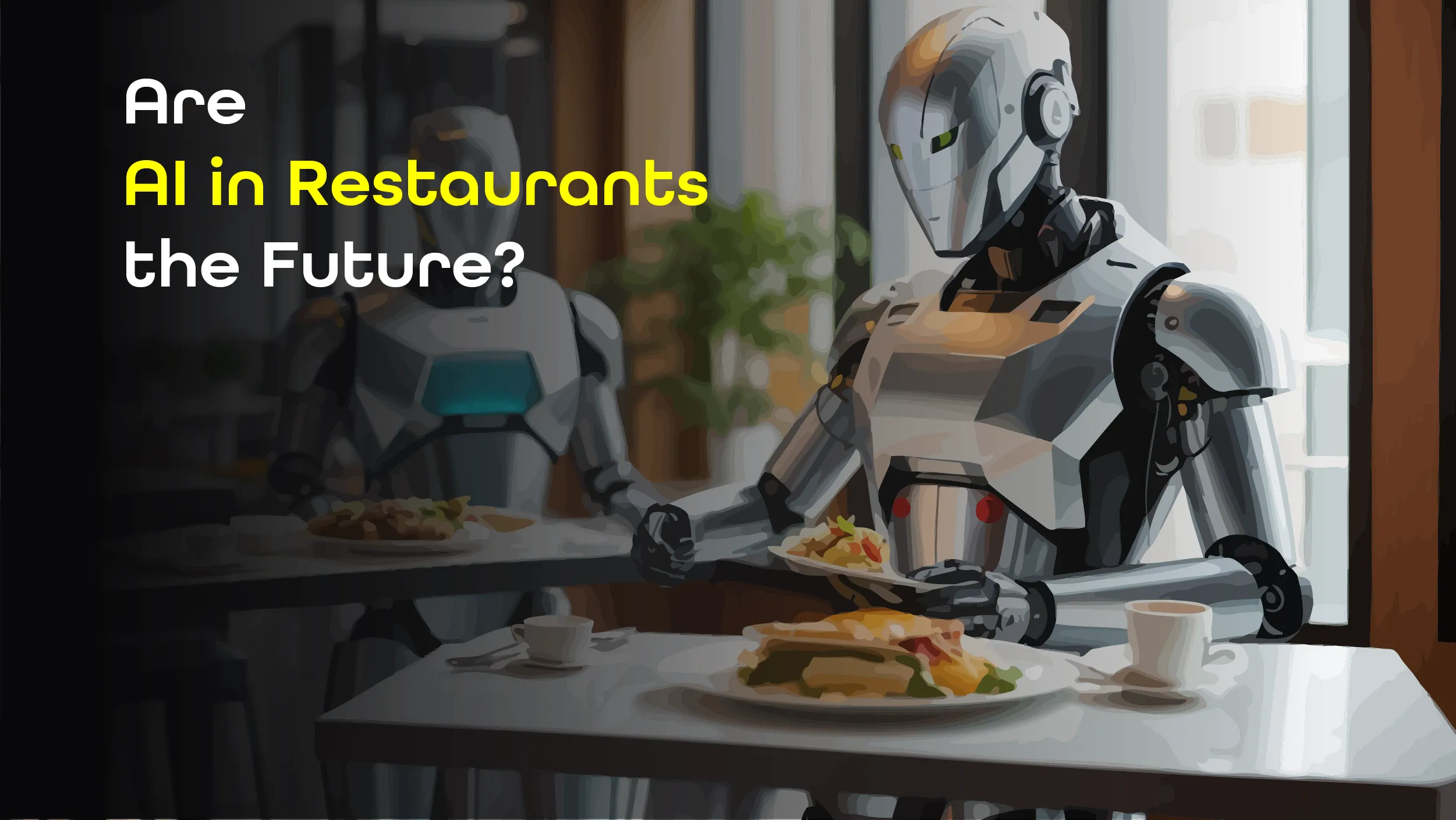Artificial intelligence, also known as AI, has undoubtedly captured people’s attention. Since the arrival of OpenAI’s ChatGPT, these AI tools have been sought after by multiple industries, including restaurants. This trend indicates a growing interest in AI applications within the restaurant sector.
Now, this doesn’t necessarily mean AI robotic waiters—perhaps that dream will come true in a couple of years. For now, let’s delve into this blog to understand exactly what we mean by AI in restaurants and how it defines the dining experience.
What Is AI in Restaurants?
AI in restaurants refers to the use of cutting-edge technology and algorithms to improve a variety of areas related to the food business. Although AI in restaurants is frequently portrayed in popular culture as robots taking over the cooking or delivery duties, the truth is more complex.
Regardless of their level of technical proficiency, restaurant operators can benefit from a variety of opportunities presented by AI. Restaurant business owners may increase customer satisfaction, expedite processes, and make data-driven decisions by utilizing AI.
Also Read: Food and Beverage: A Comprehensive Overview for 2024
How is AI Transforming The Restaurant Industry?

1. Automation and Efficiency
AI enables the automation of routine tasks such as order taking, inventory management, and menu optimization, streamlining operations, reducing costs, and improving efficiency. For example, AI-powered systems can automate the process of taking orders, reducing the need for manual input and minimizing errors.
2. Enhancing Customer Experience through Personalized Kiosks
While ordering through kiosks has become a common sight in various restaurants, some establishments are innovating further. Take KFC, for instance, which is trialing kiosks equipped with facial recognition technology. This advanced feature identifies returning customers, allowing for tailored experiences based on their previous orders and preferences.
While facial recognition may not yet be feasible for all dining venues, AI offers numerous other avenues to personalize guest experiences. Many restaurants are leveraging AI in online ordering and digital marketing to gather and utilize guest data effectively. This data helps in offering personalized services, from suggesting dishes to targeted promotional campaigns.
3. Voice-Enabled Technology
Voice-enabled devices and virtual assistants allow customers to interact with restaurants using voice commands, simplifying the ordering process and improving convenience. Customers can place orders, inquire about menu items, and receive updates on their orders using voice-activated systems, enhancing the overall dining experience.
4. Data Analysis and Insights
AI-powered analytics tools help restaurants gather and analyze large volumes of data, enabling data-driven decision-making, predicting customer preferences, and optimizing operations. By analyzing customer data, sales trends, and operational metrics, restaurants can make informed decisions to improve efficiency, optimize menus, and enhance profitability.
5. Improved Delivery Services
AI optimizes delivery routes, predicts delivery times, and enhances overall delivery efficiency. By leveraging AI algorithms, restaurants can ensure timely and accurate deliveries, improving customer satisfaction. Delivery robots could also potentially become a future application of AI in the restaurant business.
6. Enhanced Food Safety and Quality
AI can monitor and maintain food safety standards, detect anomalies in food quality, and ensure compliance with regulations. By using AI-powered systems, restaurants can enhance food safety protocols, monitor food quality in real time, and take proactive measures to maintain high standards of food safety and quality control.
7. Revolutionizing Drive-Thru Experiences: AI-Powered Chatbots
Wendy’s has pioneered a revolutionary approach to drive-thru service by introducing a fully automated, contactless experience where customers interact with a chatbot instead of a human attendant. This innovative move by the U.S.-based chain utilizes generative AI to streamline operations, aiming to reduce wait times and order inaccuracies through personalized ordering.
Inspired by Wendy’s success, other brands like CKE Restaurants (Carl Jr’s and Hardee’s) and Del Taco are also embracing AI-powered voice ordering systems in their drive-thru lanes. These technologies not only facilitate efficient order-taking but also employ AI capabilities to suggest complementary items like sides and beverages, enhancing customer satisfaction and sales opportunities.
8. Marketing and Guest Experience
AI-powered chatbots and virtual assistants can handle customer inquiries, provide recommendations, and enhance guest experiences. By using AI in marketing efforts, restaurants can personalize marketing campaigns, engage with customers on social media, and provide timely and relevant promotions, ultimately improving customer service and engagement.
9. Menu Optimization
AI can analyze customer preferences, sales data, and market trends to optimize menu offerings, pricing, and promotions. By leveraging AI technologies, restaurants can tailor their menus to meet customer demands effectively, optimize pricing strategies, and maximize profitability.
Are AI in Restaurants the Future?

Without a doubt, AI in restaurants will influence the direction of the business. AI has the potential to be a huge asset for restaurants, as they can use it to automate jobs, customize experiences, streamline operations, and make data-driven decisions in an increasingly competitive market. AI will only grow more complex as technology develops, allowing restaurants to meet changing customer expectations, increase productivity, and provide better experiences for their patrons.
The human element in hospitality cannot be replaced by AI, but when combined with human knowledge, it can help create a more smooth and effective restaurant business. Looking ahead, it’s evident that AI in restaurants is a revolutionary force that will continue to influence dining experiences rather than just a passing fad.



